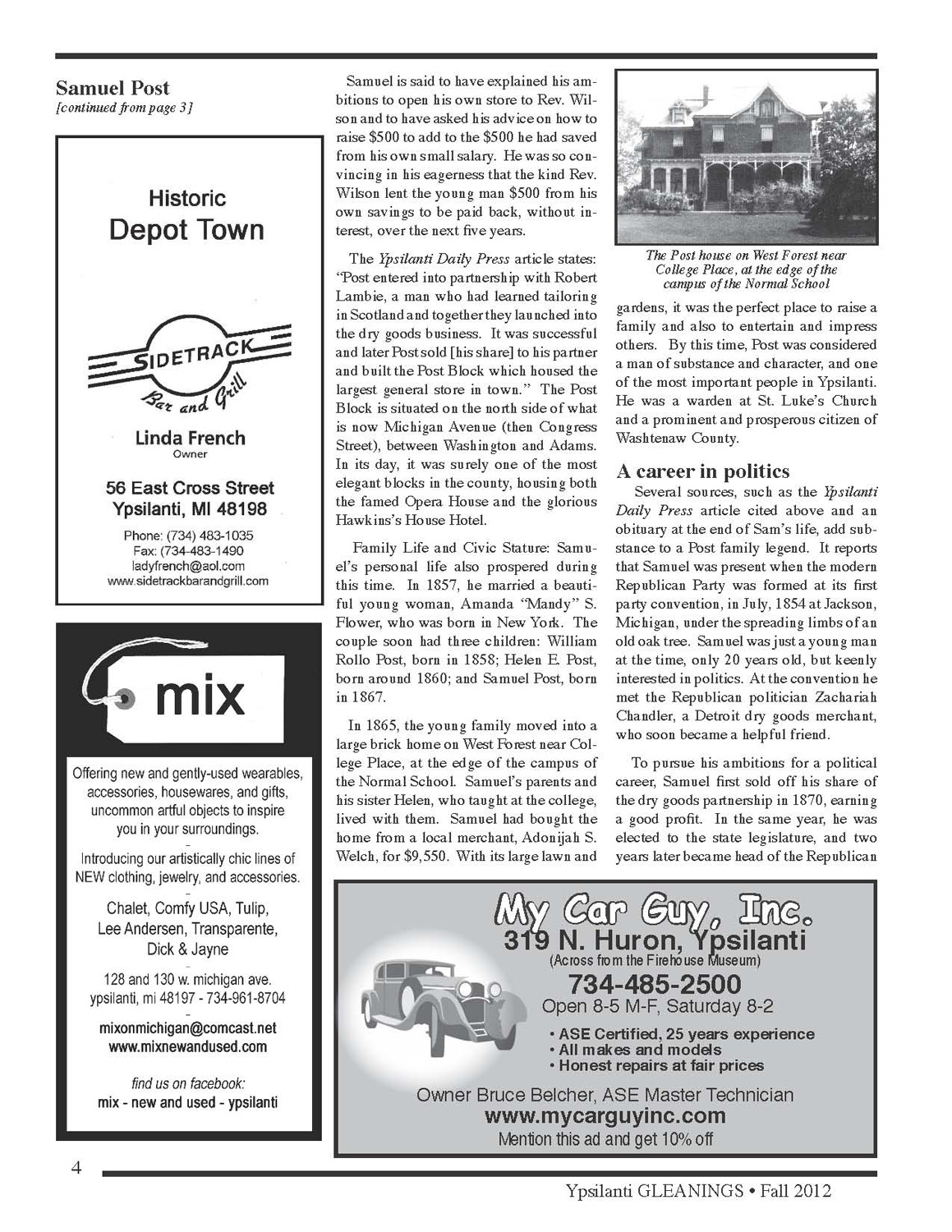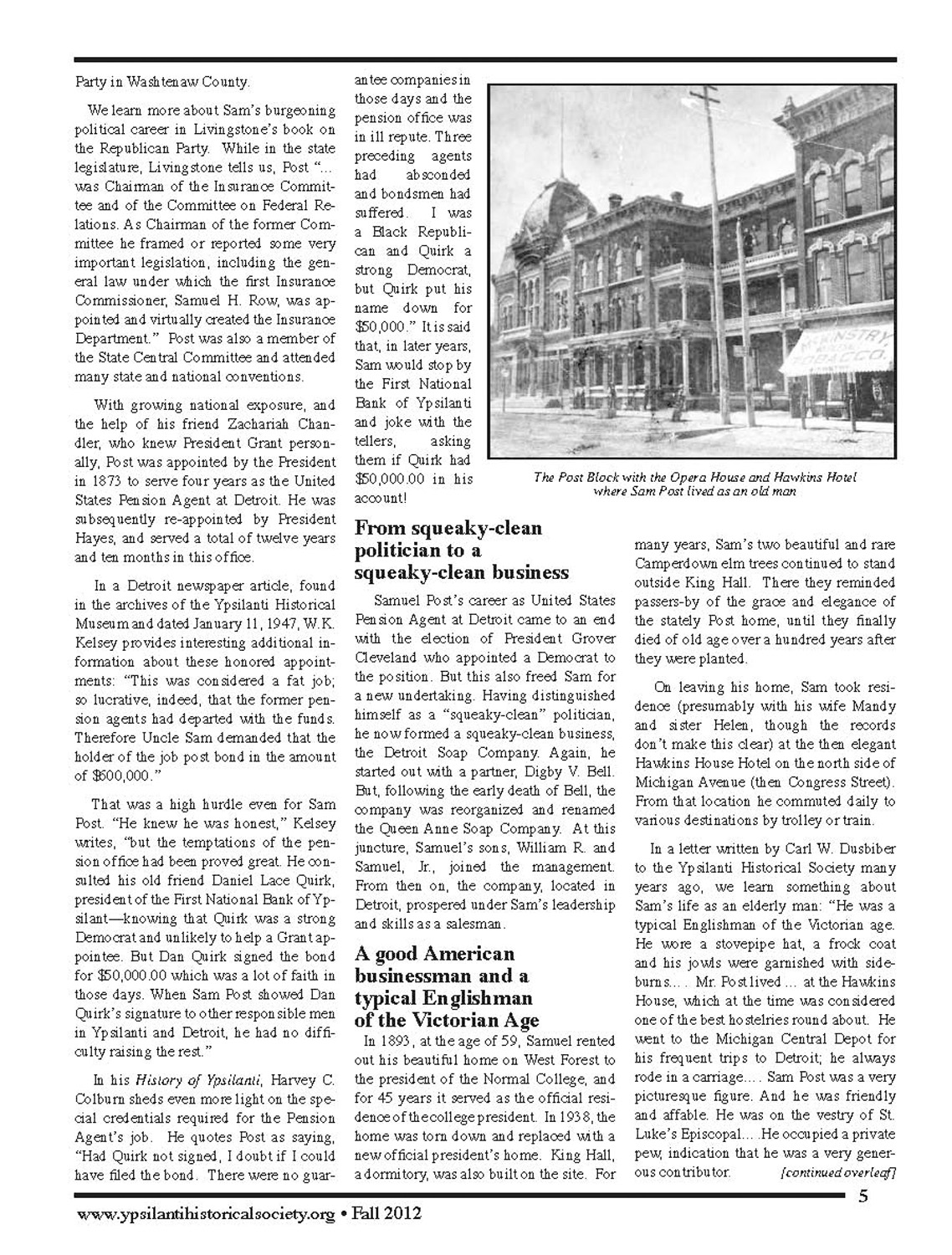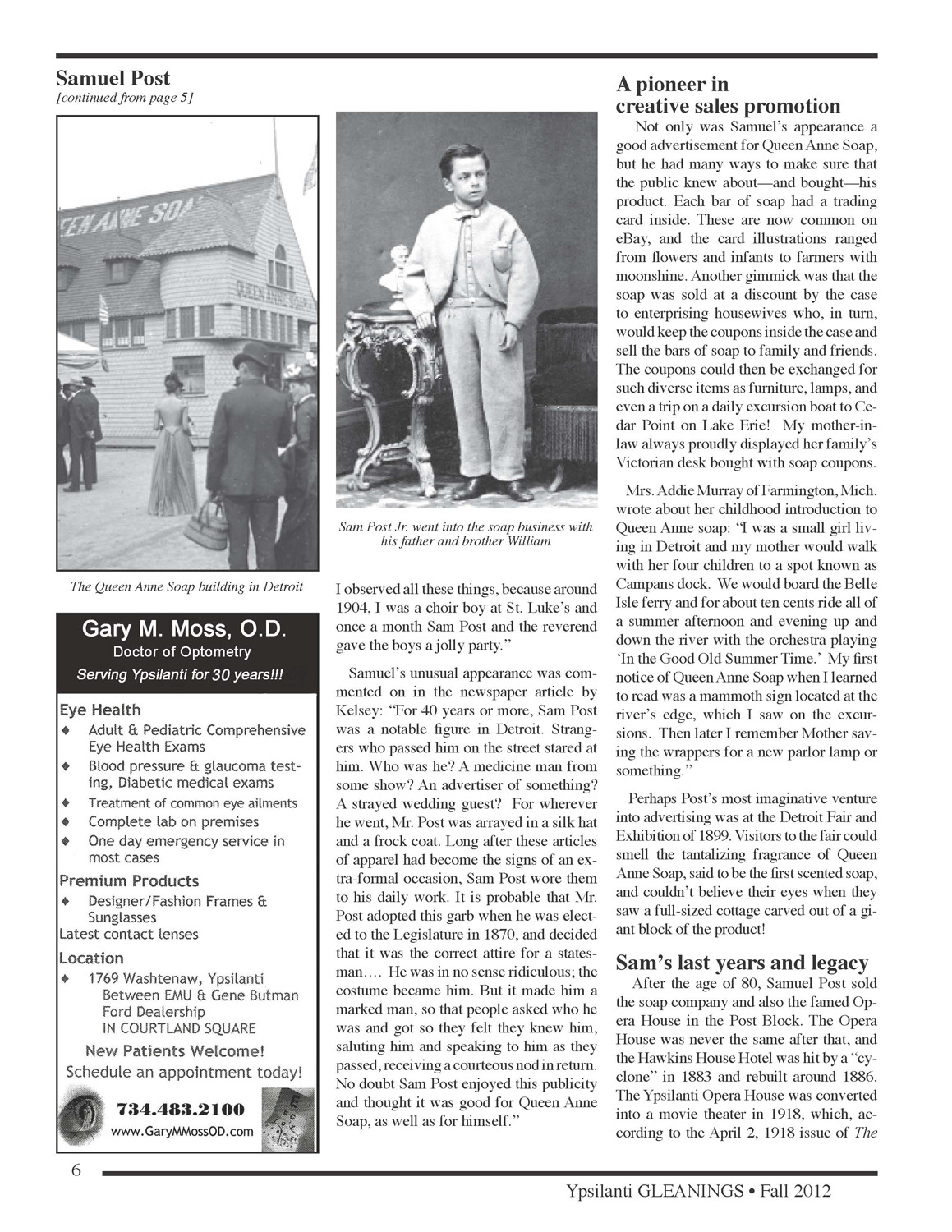Samuel Post: Ypsilanti's "Squeaky Clean" Politician






Parent ID
Rights Held By
Ypsilanti Historical Society
Doc
Subjects
Ypsilanti Gleanings
Biography
Business
City History
Government